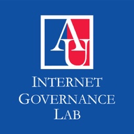In his 2017 book The Death of Expertise, author Tom Nichols, himself a professor at the U.S. Naval War College, traces the growth of anti-rationalism in American politics, writing, “Americans have reached a point where ignorance, especially of anything related to public policy, is an actual virtue." He continues:
"to reject the advice of experts is to assert autonomy, a way for Americans to insulate their increasingly fragile egos from ever being told they're wrong about anything. It is a new Declaration of Independence: No longer do we hold these truths to be self-evident, we hold all truths to be self-evident, even the ones that aren't true. All things are knowable and every opinion on any subject is as good as any other."
As Nichols explains, this state of play, in which intellectual authority is met with derision and outright hostility, represents a serious threat to the functioning of the public sphere and American democracy itself. But it also poses a particular set of challenges for academics looking to reach policymakers and the public, this according to a report published last week in the Texas National Security Review.
Titled “Policy Roundtable: How to Bridge the Gap Between Academics and Policymakers,” the report includes four essays from leading foreign policy and national security scholars, including American University professors James Goldgeier and Sarah Snyder, both of the School of International Service.
Goldgeier, a Senior Visiting Fellow at the Council on Foreign Relations and Co-Principal Investigator of the Bridging the Gap Initiative highlights some of the common barriers preventing academics from publishing policy-oriented work, including the strictures of the tenure process and disciplinary constraints. He also points out some of the opportunities created by alternative outlets for scholarship, such as think tanks and online publications like War on the Rocks, Lawfare, and The Conversation. As Goldgeier explains, “no one who advocates for bridging the gap is suggesting that scholars abandon serious academic work to write op-eds or think tank reports. The goal is to do both well and use academic work to build a broader portfolio.”
Dr. Snyder, author of From Selma to Moscow: How human rights activists transformed U.S. foreign policy and Human Rights Activism and the End of the Cold War: A transnational history of the Helsinki network describes her experience negotiating the challenges and opportunities involved in bridging this gap, including questioning one’s own expertise, working with editors, and providing accessible context and actionable analysis for a policy audience. In particular, Dr. Snyder calls attention to persistent gender disparities among those submitting op-eds and publicly facing work, which she attributes to, among other things, “gendered media gatekeeping” and the heightened risk of online harassment. As Dr. Snyder explains, “The risk of suffering harassment is real and may be magnified within a population already more risk averse. One way to diminish such threats is to increase the number of women writing op-eds and speaking as authorities in news articles.”
You can read the entire report here.
